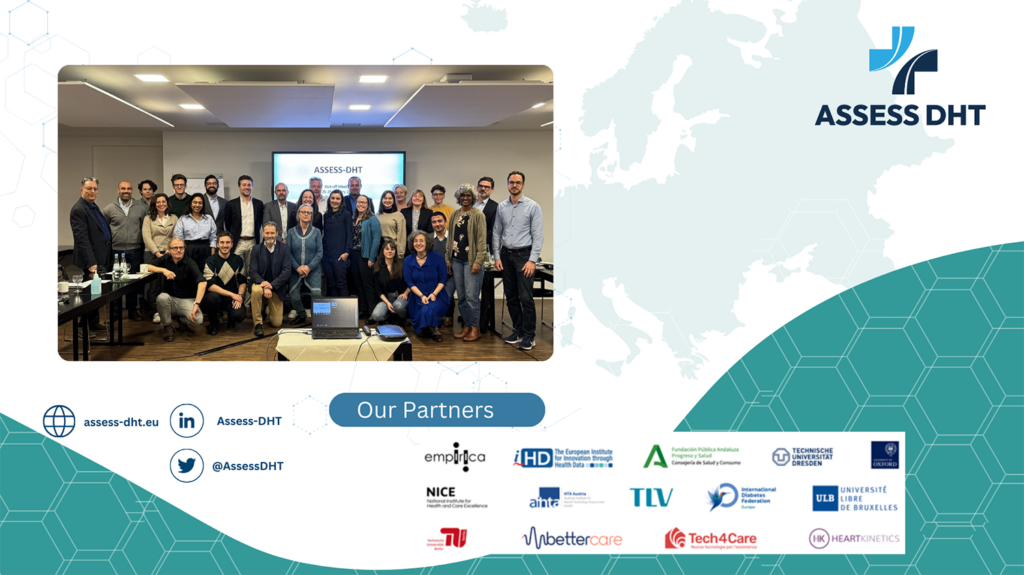On January 25th and 26th, we were delighted to host our kick-off event for new initiatives in digital health technologies assessment, bringing together our partners at the Universitätsclub Bonn. The first day commenced with a dinner attended by 25 participants, setting the stage for two days of insightful discussions.
empirica welcomed partners on the first day, delivering opening remarks outlining the meeting’s objectives and providing a brief overview of the agenda. Each partner then introduced themselves, discussing their institution’s role and tasks in the project.
Highlights from the day’s discussions included:
- The National Institute for Health and Care Excellence (NICE) focused on creating efficient synergies with the sister project EDIHTA and considering the upcoming Health Technology Assessment (HTA) regulation in the EU.
- The new HTA regulation aims to introduce a permanent structure for joint work, starting with oncology and Advanced Therapy Medicinal Products (ATMPs) and extending to all medicinal products authorized by the EMA by 2030.
- Special attention was given to Task T2.4, which monitors the use of existing tools by countries and examines their impact on the performance of health systems. Additionally, the importance of user experience was highlighted to avoid bias due to participant attrition, potentially leading to positive clinical evaluations of DHTs in observational studies.

Participants also discussed the challenges in assessing DHTs, emphasizing the need to safeguard user experience and adapt assessment methods to the rapidly evolving nature of DHTs.
Furthermore, data management, data protection, and cybersecurity were identified as critical aspects for the success of DHTs. Various approaches and tools to address these challenges and support DHT development were explored.
The meeting marked a significant step towards a coordinated and efficient assessment of digital health technologies in Europe, with the goal of improving healthcare and fostering innovation in the digital health sector.
On the second day, discussions focused on WP4, dedicated to Connection and Communication, which has been tasked with ensuring efficient coordination with WP2 and WP5. Emphasizing the importance of leveraging existing frameworks and prioritizing transparency in evaluation processes, the consortium aims to navigate the dynamically complex landscape of data quality assessment. However, reaching a consensus on how to assess data quality remains a formidable challenge, with the Health Data Institute (i~HD) unveiling its proprietary framework for this purpose. This development has prompted discussions on where Health Technology Assessment (HTA) bodies should seek evidence of adherence to specific data quality criteria by product developers.
Furthermore, discussions within the consortium have delved into the necessity of understanding distinct life cycles within the taxonomy. The IDEAL approach, integrated into ASSESS DHT, is being explored for its potential in mapping life cycles and formulating life-cycle-based evaluation recommendations. Moreover, considerations surrounding the personalization of treatments and the feasibility of addressing transformation questions have been thoroughly examined.
In parallel, stakeholder engagement and consultation have emerged as pivotal components of the consortium’s research endeavors. Efforts to follow up with interested organizations for participation in case studies, coupled with deliberations between WP6 and WP4 on the setup and timing of roundtables and public consultations, have been prioritized.
The consortium’s proactive approach underscores its commitment to advancing healthcare research through enhanced collaboration, rigorous data quality assessment, and inclusive stakeholder engagement strategies.